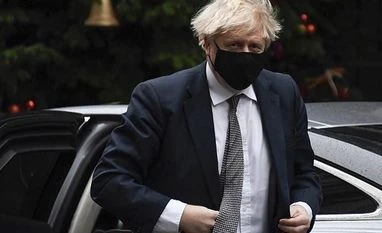By Huw Jones
LONDON (Reuters) - Britain will introduce rules for buy-now pay-later (BNPL) credit after the unregulated market spiked as consumers struggled during coronavirus pandemic lockdowns, the UK's finance ministry said on Tuesday.
BNPL, particularly popular with young people shopping for clothes, is offered by companies such as Clearpay, which is owned by Australia's Afterpay Ltd, Klarna, LayBuy, Openpay and Paypal.
It is quick to obtain such interest-free short-term loans that spread the payment for retail goods.
"By stepping in and regulating, we're making sure people are treated fairly and only offered agreements they can afford - the same protections you'd expect with other loans," financial services minister John Glen said in a statement.
Legislation will be brought in as soon as parliamentary time allows, forcing providers to make affordability checks before lending to a customer, he said.
Also Read
Glen was responding to a review on the 250 billion pound unsecured credit market by former Financial Conduct Authority interim CEO Christopher Woolard also published on Tuesday.
Woolard told reporters retailers could start "putting their own house in order" by doing credit checks on customers. Hopefully new rules would come into force in "months rather than years".
Demand for BNPL products spiked in tandem with COVID-19 restrictions, with products nearly quadrupling in 2020, and now total 2.7 billion pounds, with 5 million users since the beginning of the pandemic, the review said.
More than one in 10 customers of a major bank using BNPL were already in arrears, the review said.
"The emergence and expansion of unregulated BNPL products gives consumers a significant alternative to more expensive credit, but this also comes with significant potential for consumer harm," the review added.
Britain is breaking from Australia, where the Australian Securities and Investments Commission (ASIC) last year stopped short of recommending BNPL be included in consumer finance regulation in a report. ASIC was not immediately available for comment after the UK decision.
Klarna, which offers BNPL products in Britain, said it was "very comfortable" operating in a regulated environment.
"We agree that regulation has not kept pace with new products and changes in consumer behaviour," Klarna said.
Afterpay said it welcomed the review and looked "forward to working with the FCA, the government and stakeholders to build on the consumer protections we already provide to create the applicable regulation for the sector".
Woolard's review recommended funding free advice for people struggling to manage their debts as demand increases to as many as 1.5 million additional cases following the pandemic.
"As the Covid-19 pandemic plays out, huge potential pent-up demand for debt advice is being built up among people who are currently receiving temporary support, but whose needs will crystallise when emergency support unwinds," StepChange Debt Charity said.
The review recommended that the FCA, Bank of England and government make it easier for credit unions to become an alternative to high cost credit.
Mainstream lenders should also be encouraged to provide alternatives to high cost credit as well, the review said. "They really do need to talk about mid-cost credit more... as an alternative to very expensive credit," Woolard said.
(Reporting by Huw Jones, with additional reporting by Byron Kaye in Sydney, editing by Sinead Cruise, David Evans and Gerry Doyle)
(Only the headline and picture of this report may have been reworked by the Business Standard staff; the rest of the content is auto-generated from a syndicated feed.)
)